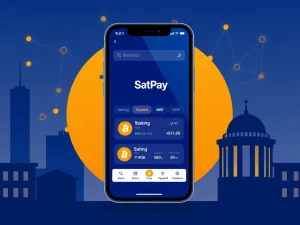
[ad_1]
DeFi for Banks
DeFi means “decentralized finance”; it characterizes those financial applications that rely on blockchain and, therefore, do not need intermediaries to provide traditional services-for instance, banks and brokers. Yet, even though DeFi is considered overall as an alternative to traditional banking, recently it has appeared possible that financial institutions might incorporate decentralized elements into their services.
With blockchain technology, banks are now able to build decentralized financial services-right on the blockchain-for lending, borrowing, and trading, guaranteeing much lower fees, faster transactions, and increased access to such services, especially for the underbanked.
One area where this could make a real difference is in cross-border transactions. Traditional cross-border money transfers are slow and expensive. Hence, blockchain banking can provide faster and cheaper methods of cross-border payments, which would surely boost financial inclusion and shave off the operational costs to a great extent.
Digital Ledger Technology for Banks
At the heart of blockchain is digital ledger technology (DLT), which serves as a decentralized record of transactions. DLT allows multiple participants to have synchronized copies of the same data, ensuring consistency and transparency.
In banking, DLT can revolutionize how transactions are recorded and verified. Here’s a simplified look at how digital ledger technology can be applied:
Traditional Banking
Digital Ledger Technology (Blockchain)
Transactions are processed by a central authority (bank).
Transactions are verified by a decentralized network of nodes.
Settlement times can take days.
Settlements occur almost instantly.
High costs due to intermediaries.
Lower costs with fewer middlemen.
Records can be altered.
Immutable and tamper-proof records.
Using digital ledger technology allows banks to maintain a secure and transparent record of all transactions. This improves trust, reduces fraud, and ensures the accuracy of financial data.
Challenges of Implementing Blockchain in Banking
While BaaS finance offers numerous benefits, there are also challenges that financial institutions need to address. One of the biggest hurdles is ensuring that blockchain technology integrates smoothly with existing banking infrastructure. Many legacy systems can’t work with decentralized technologies, requiring upgrades or significant modifications.
Another concern is privacy. Although blockchain is secure and transparent, some banks may worry about the level of information that becomes publicly accessible. Permissioned blockchains, where only authorized users can access certain data, are one solution to this issue.
Use Cases for Blockchain Banking
Pragmatic uses of blockchain by banks to improve operations are already underway. The use cases that seem to come up most include:
Cross-border payments: International money transfers use up considerable time and money in both fees and the process itself. Using blockchain will cut down that process significantly.
Trade finance: Blockchain allows trade documents to be digital, facilitating the tracking of goods and verification of transactions.
Know Your Customer: Lets banks make the verification process of customers’ identities less redundant and more accurate by sharing information on a blockchain regarding the customer whose identity has already been verified.
Smart Contracts: Banks can use smart contracts to enable them to automate the execution of agreements and, therefore, require little human intervention and reduce the possibility of human error.
Among financial institutions, the route of scaling operations with blockchain that appears the most appealing is Blockchain as a Service. With BaaS finance, it offers security in a decentralized solution that gives banks the mechanism for easing processes, improving compliance, and provision of better services to customers.
With a continued interest in decentralized financial services and in the applications of digital ledger technology for banks, the future of blockchain banking looks bright.
[ad_2]
Source link









